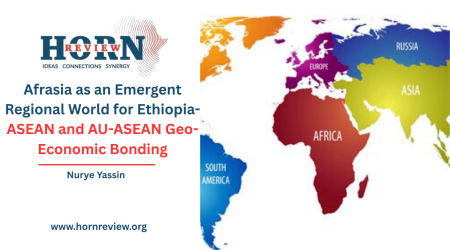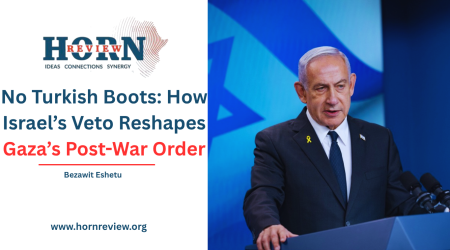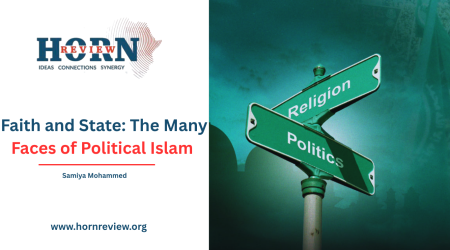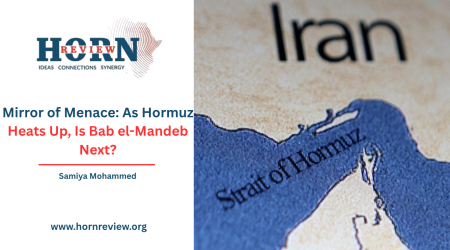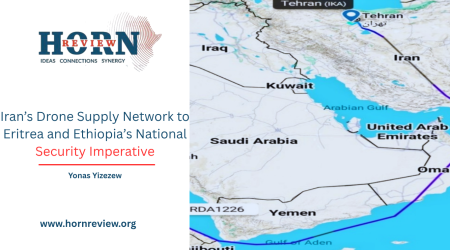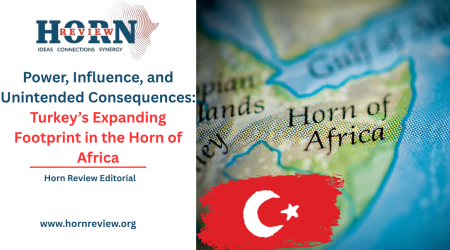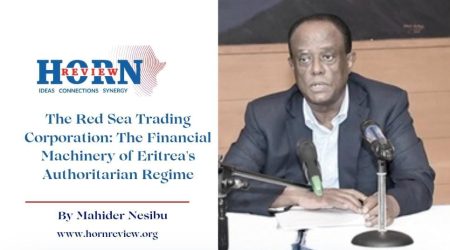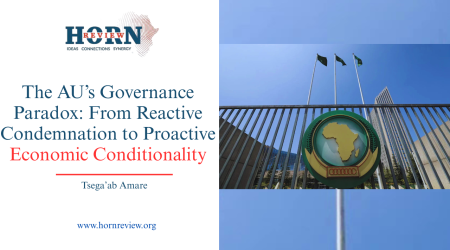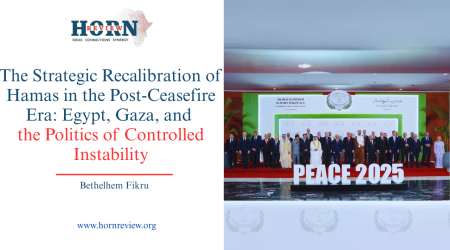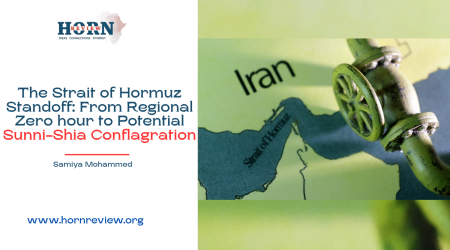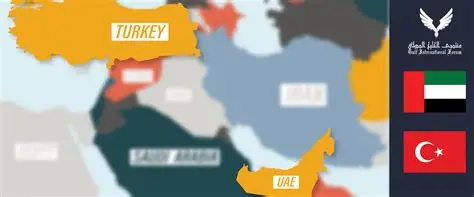
8
Aug
Middle Power Rivalry in the Horn of Africa: Turkey and the UAE’s Competing Visions
The international system is witnessing a recalibration of power, marked by the growing prominence of “middle powers” states that, while not superpowers, exert considerable influence. Turkey and the United Arab Emirates (UAE) exemplify a category of emerging middle powers pursuing assertive, regionally focused foreign policies, particularly in Africa, driven by diplomatic, economic, and military clout.
The Horn of Africa’s geostrategic importance, commanding vital maritime routes like the Bab el-Mandeb Strait, is matched by profound instability from conflicts, piracy, and fragile statehood. This complex environment, historically a theater for great power competition, has become a focal point for Turkey and the UAE.
Turkey in the Horn of Africa
Turkey’s engagement in the Horn of Africa, which has accelerated since the early 2000s, skillfully blends soft power with robust economic and military initiatives. Diplomatically, Ankara leverages historical Ottoman-era ties and a common Muslim identity. This was notably demonstrated during President Erdoğan’s 2011 visit to Somalia amid a devastating famine, a move that positioned Turkey as a compassionate and effective international partner. Turkish aid, often delivered without the stringent conditionalities imposed by Western nations, has built considerable goodwill alongside its cultural outreach programs (Hagi Mohamoud, 2023).
Economically, Turkish firms now manage critical Somali infrastructure, including Mogadishu’s international airport and seaport, and have invested over $2 billion in Ethiopia. This economic footprint is reinforced by a significant military presence. Turkey’s TURKSOM base in Mogadishu is pivotal in training the Somali National Army, and a landmark 2024 defense pact with Somalia formalized cooperation on maritime security while granting Turkey resource exploration rights (Abouyoussef, 2024). Furthermore, Turkey’s sale of Bayraktar TB2 drones to both Ethiopia and Somalia underscore its growing role as a key defense partner in the region.
Critically, Turkey’s motivations are multifaceted, fusing Erdoğan’s vision of a globally influential Turkey and domestic political calculations with clear strategic and economic interests (Hagi Mohamoud, 2023). While humanitarianism is a key public theme, the “no strings attached” approach to aid simultaneously cultivates the influence necessary for Turkish commercial ventures. However, this strategy is not without controversy. The drone sales to Ethiopia during the Tigray conflict drew sharp criticism over potential complicity in human rights abuses. These actions, coupled with allegations that Turkey supports certain Islamist groups, complicate its regional role and risk undermining long-term stability by potentially enabling authoritarianism.
UAE in the Horn of Africa
The UAE, under Mohammed bin Zayed Al-Nahyan, has adopted an assertive foreign policy in the Horn of Africa. This approach fuses economic leverage with a robust security presence, a strategy that is sometimes described as “sub-imperialism” (De Waal, 2019). Abu Dhabi’s diplomatic efforts focus on securing elite bargains and regime stability, often aligning with U.S. strategic interests like counter-terrorism and containing Iran.
Economically, state-linked entities such as DP World acquire and manage strategic ports like Assab, Berbera, and Bosaso, aiming to be a critical logistics connector between Asia, Africa, and Europe (Kurtz et al., 2024). The UAE’s investments also target natural resources and agriculture, which has led to accusations of “sub-imperialism” and resource extraction that is detrimental to local sovereignty, as voiced by Djibouti’s President.
Militarily, the UAE has established bases in places like Assab and Berbera and provides arms and training to various actors. This has allegedly included non-state groups such as Sudan’s Rapid Support Forces (RSF), drawing international condemnation due to accusations of war crimes.
The UAE’s motivations are multifaceted. They include economic diversification, securing Red Sea trade routes, countering regional rivals like Iran, Qatar, and Turkey, and projecting its own regional power. While the UAE often presents its actions as promoting stability, its approach is fundamentally transactional, using financial muscle to promote political alignments (De Waal, 2019). The support for actors like the RSF and acquisitions of large tracts of land—which have raised concerns about “land grabs” and local food security—illustrate how the UAE pursues its own distinct agenda with considerable agency, even when aligning with U.S. interests (Kurtz et al., 2024).
Divergent Paths, Converging Rivalry
Turkey and the UAE employ contrasting strategies. Turkey emphasizes public diplomacy, historical ties, and broad-based engagement, with a “win-win” development narrative. Its military focus includes training national armies and formal defense pacts. The UAE prefers state-centric, security-driven partnerships, with large-scale FDI via state-owned enterprises focused on critical infrastructure and resource extraction. Its military approach includes its own bases and alleged covert support to proxies.
Their potent rivalry, fueled by ideological differences (Turkey’s past affinity for Muslim Brotherhood-linked groups vs. UAE’s anti-Islamist stance) and competition for dominance, is acute in the Horn. In Somalia, Turkey backs the federal government, while the UAE has supported federal states, exacerbating tensions. In Sudan, Turkey has aligned with the SAF-backed government, while the UAE reportedly backs the RSF. This competition often fuels local conflicts and creates a “sovereignty bazaar,” where Horn states shop for patronage, potentially incentivizing short-term decisions that undermine long-term stability (Van den Berg & Meester, 2019).
The engagement of Turkey and the UAE diminishes traditional Western leverage by offering Horn states partnership options with fewer conditionalities regarding governance and human rights. They fill vacuums left by perceived Western disengagement, exploiting narratives of Western unreliability. This contributes to a multipolar dynamic, granting Horn states more agency but also fostering instability through proxy conflicts and arms proliferation. The “actual existing truth” is that geopolitical positioning often trumps genuine development, leading to volatile alliances and potentially eroding regional sovereignty norms as external interference becomes normalized.
In a nutshell, Turkey and the UAE are assertive middle powers reshaping the Horn of Africa. Turkey’s soft power and development aid contrasts with the UAE’s economic and security-focused projection. While offering alternatives, their rivalry and pursuit of national interests often exacerbate instability and raise governance concerns. The era of uncontested Western dominance is over, replaced by a complex, competitive landscape. Horn states must navigate this environment astutely, while international actors need a critically informed perspective on these influential middle powers to understand the region’s evolving future. To mitigate these risks, Horn states should collaborate to establish a regional framework for managing foreign investment and security partnerships. This approach would help move the region away from the current “sovereignty bazaar” and toward more sustainable, cooperative relationships.
By Tsega’ab Amare, Researcher, Horn Review
Reference
- Abouyoussef, A. (2024, September 12). Turkey and Somalia: A new rising pact in the Horn of Africa. Al Habtoor Research Centre. https://www.habtoorresearch.com/programmes/turkey-and-somalia/
- De Waal, A. (2019). Pax Africana or Middle East Security Alliance in the Horn of Africa and the Red Sea? World Peace Foundation. https://worldpeacefoundation.org/publication/pax-africana-or-middle-east-security-alliance-in-the-horn-of-africa-and-the-red-sea/
- Hagi Mohamoud, M. O. (2023). Turkey’s new strategic engagement in Sub-Saharan Africa: The case of Somalia and Sudan. Manchester Metropolitan University Repository. https://e-space.mmu.ac.uk/632611/
- Kurtz, G., Roll, S., & von Lossow, T. (2024). Escalation risks in the Horn of Africa: Threats from Egypt, Ethiopia, and Somalia exacerbate local conflicts (SWP Comment No. 50/2024). Stiftung Wissenschaft und Politik. https://www.swp-berlin.org/10.18449/2024C50/
- Van den Berg, W., & Meester, J. (2019). Turkey in the Horn of Africa: Between the Ankara Consensus and the Gulf Crisis. https://www.researchgate.net/publication/333420858_Turkey_in_the_Horn_of_Africa_Between_the_Ankara_Consensus_and_the_Gulf_Crisis

